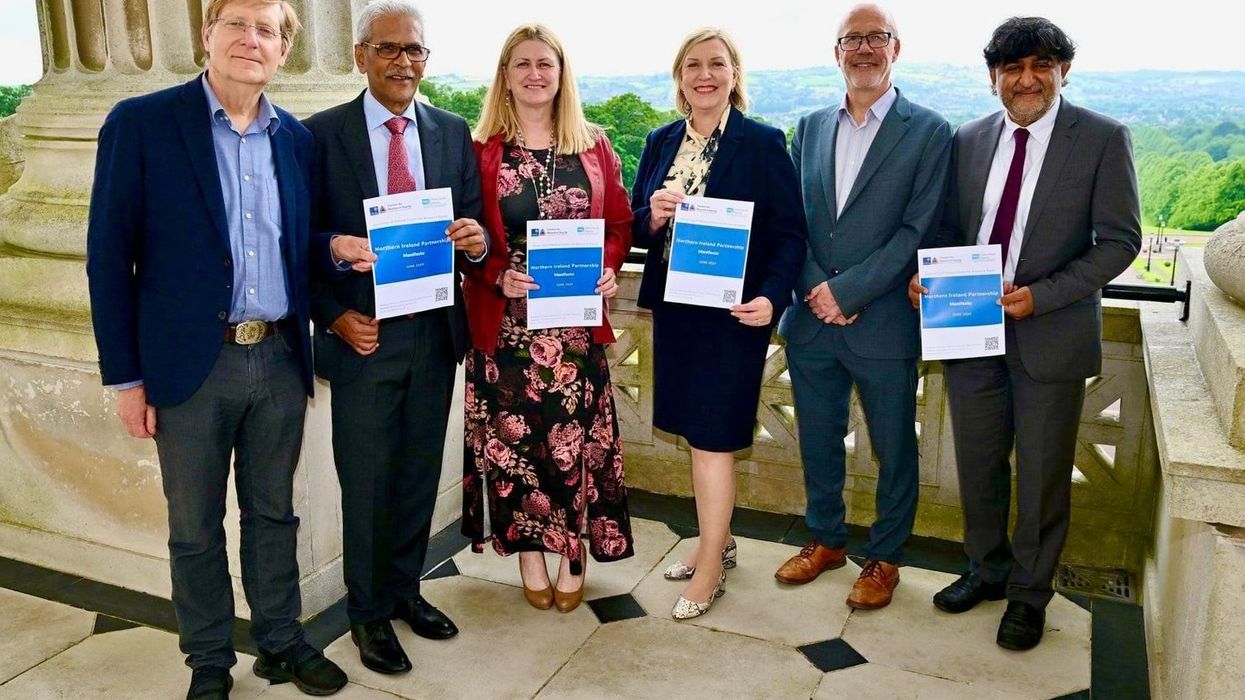The partnership aims to improve health outcomes and reduce disparities through collaborative research
The University of Oxford's Centre for Research Equity (CfRE) has entered into a historic partnership with key health and social care agencies in Northern Ireland to advance health equity across the region and ensure everyone benefits from healthcare advancements.
Unveiled during an event at Parliament Buildings in Stormont Estate on Wednesday, this groundbreaking partnership makes Northern Ireland the first UK region to partner with CfRE.
The partnership, involving the Health and Social Care Research and Development (HSC R&D) Division in Northern Ireland, the Department of Health Northern Ireland, and other key health and social care agencies, aims to improve health outcomes and reduce disparities through collaborative research.
Northern Ireland's Health Minister, Mike Nesbitt, highlighted that this new partnership represents “a significant step forward in efforts to address health inequalities” in the region.
“By bringing together leading experts and resources from across sectors, we can work towards conducting research that truly benefits all of our communities,” he said.
Professor Mahendra G Patel, Director of CfRE, emphasised the partnership's commitment to community engagement, stating: "At the heart of this ground-breaking partnership between Oxford University and Northern Ireland is a dedication to involving patients, the public, underserved communities, as well as health and care organisations and stakeholders in setting research priorities.”
He added: “We want to ensure that research outcomes are applicable, safe and beneficial to all, and that starts with listening to and engaging with the very people we serve, including those who are often disproportionately affected by poorer health and health outcomes.”
Laura Collins, Lived Experience Expert (Family Carer), and Public Involvement Enhancing Research (PIER) group member, HSC Research & Development Division, Public Health Agency, and a full-time family carer for the past 43 years, underscored the significance of research equity for patients and carers.
"As someone who has spent decades advocating for family carers and individuals with disabilities, I know firsthand how crucial it is for research to reflect the needs and experiences of all communities.
“The partnership's commitment to involving all in research is a vital step towards ensuring that everyone can benefit from advances in healthcare,” she said.
Professor Cathy Harrison, Chief Pharmaceutical Officer in Northern Ireland, noted that this initiative builds on the lessons learned and relationships forged during the COVID-19 pandemic.
She added that they are committed to developing new collaborative approaches that will ensure that research reaches and includes diverse populations, including those who have been “historically underrepresented” or “faced barriers to accessing research opportunities.”
Professor Ian Young, Chief Scientific Advisor at the Northern Ireland Department of Health, highlighted that this new partnership brings together various sectors in Northern Ireland, including health and social care, academia, industry, and the voluntary sector, to leverage collective strengths.
Dr. Janice Bailie, Assistant Director at HSC R&D Division, pointed out that this collaboration reflects their dedicated effort to incorporate the perspectives of diverse communities into their research framework and ensure inclusivity.
Professor Richard Hobbs, Pro-Vice Chancellor of the University of Oxford, noted that this partnership is not a one-time initiative, but rather “a long-term commitment to advancing research equity and improving health outcomes in Northern Ireland and beyond.”
“By building a strong foundation of collaboration and community engagement, we aim to create lasting change,” he said.
This initiative is part of CfRE's broader strategy to establish multiple hubs across the UK, to aimed at building a healthier and more inclusive future for all.













